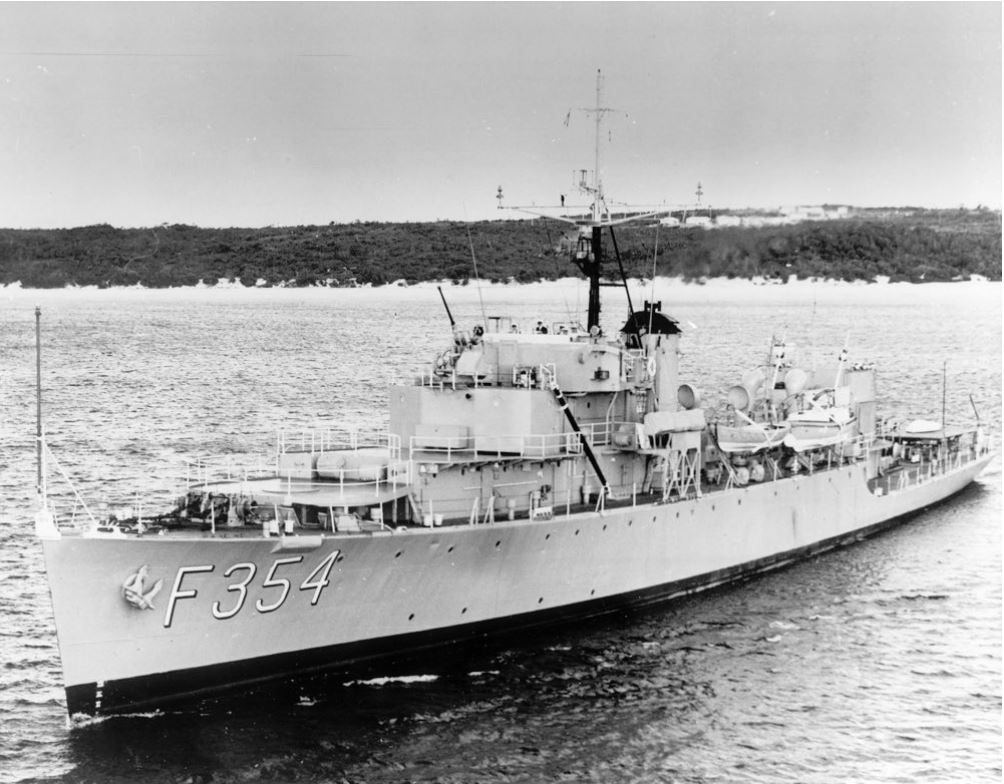Difference between revisions of "HMAS Gascoyne"
From Our Contribution
(Created page with "{{Infobox | name = HMAS Gascoyne | title = | above = | subheader = | image = File:HMAS_Gascoyne.jpg | caption = | i...") |
|||
| Line 54: | Line 54: | ||
==Soldiers carried== | ==Soldiers carried== | ||
| + | Makkassa to Balikpapen 22 - 23 | ||
[[Category:Ships]] | [[Category:Ships]] | ||
Revision as of 18:20, 3 April 2019
 | |
| History | |
|---|---|
| Name | HMAS Gascoyne |
| Builder/Built | 1943 |
Remarks
HMAS Gascoyne was ordered as part of Australia's shipbuilding program during the Second World War. Twelve of these Australian built frigates were to enter service with the Royal Australian Navy. A further ten were ordered but cancelled as the war drew to a close.
On 5 Feb 1944 she sailed for Papua/New Guinea and patrolled those waters until 31 May 1944 when she returned to Sydney for docking. She returned to New Guinea on 7 Aug 1944 and in October 1944 took part in the landings at Leyte Gulf in the Philippines.
On 2 January 1945 Gascoyne sailed from Leyte as part of the great armada assembled in San Pedro Bay for the second phase of the Philippines campaign which aimed at the prompt extension of the success gained at Leyte by a landing at Lingayen as a preliminary to the seizure of Central Luzon and reoccupation of Manila. Enroute she experienced her first surface action of the war when in company with HMAS Warrego and USS Bennion she engaged two Japanese destroyers at long range. She then served as escort for convoys proceeding to the newly conquered areas in the Philippines. In mid April 1945 Gascoyne returned to Sydney and thence to Melbourne for refit.
In June 1945 Gascoyne returned to New Guinea waters where she was engaged on further escort duty. In July she took part in the seizure by Australian forces of the Balikpapan area in Borneo, including bombardment support for the troops ashore. August, the last month of the war, was spent escorting convoys to Borneo. In September she took part in the surrender of Japanese forces in Borneo, being used to transport the Commanding General of the Japanese 2nd Army.
The remaining period of 1945 was spent transporting troops and stores, a service which took the frigate into the Moluccas, Halmaheras, Borneo and Timor. She returned to Sydney on 5 January 1946. Gascoyne paid off again on 26 November 1948. Following a period of over ten and a half years in Reserve, Gascoyne recommissioned at Sydney on 8 June 1959, under the command of Lieutenant Commander John Nicholas, RAN for survey and oceanographic research duty. She was converted and specially fitted and equipped for this task, including the provision of laboratories on board.
Following over six years service as a survey and oceanographic research ship, Gascoyne paid off on 1 February 1966. Gascoyne was sold as scrap on 15 February 1972 to the Fujita Salvage Company Limited of Osaka, Japan.
Soldiers carried
Makkassa to Balikpapen 22 - 23